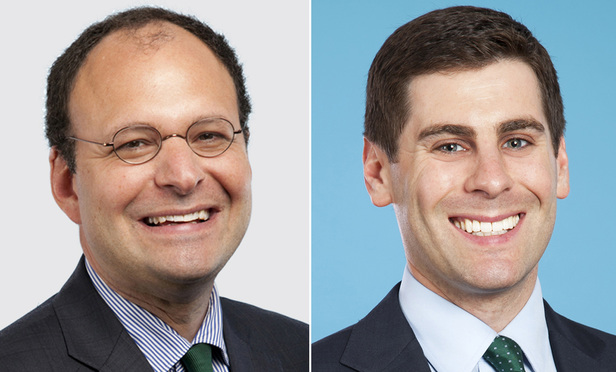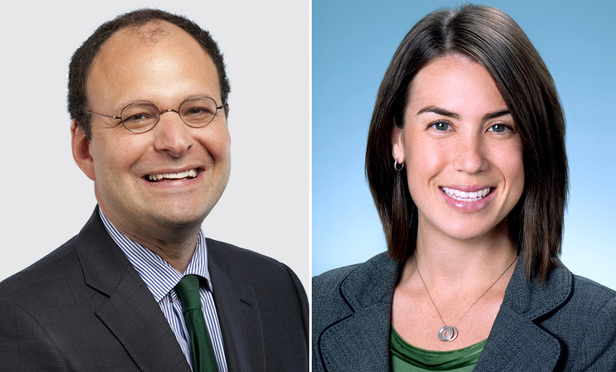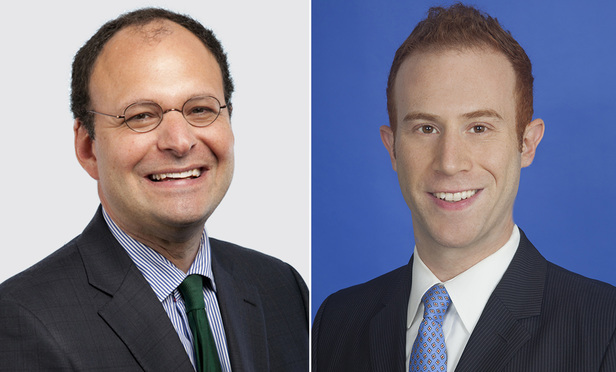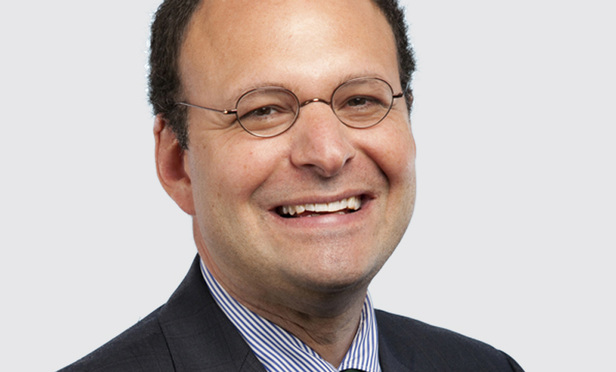Jeremy M Creelan

February 14, 2017 | New York Law Journal
Class Certification: Will Gorsuch Pick Up Where Scalia Left Off?Jeremy M. Creelan writes: For two decades leading up to Justice Antonin Scalia's death, the U.S. Supreme Court's class certification jurisprudence took shape as a dialogue between Justices Scalia and Ruth Bader Ginsburg over the commonality and predominance requirements of Federal Rule of Civil Procedure 23(a)(2) and (b)(3), respectively. With Scalia's passing, the court has hinted that it will embrace Ginsburg's pragmatic approach in future cases. But a surprisingly few clues indicate whether Judge Neil Gorsuch of the Tenth Circuit will follow in Scalia's footsteps in this area.
By Jeremy M. Creelan
27 minute read

March 17, 2016 | New York Law Journal
'Gambits' or Just Good Lawyering? Class Action Cases in Supreme CourtJeremy M. Creelan and Daniel H. Wolf write: Despite the pro-plaintiff result in 'Campbell-Ewald', there is an underlying logic to the decision that can be squared with the U.S. Supreme Court's recent class-action opinions raising the threshold requirements faced by plaintiffs. Taken together, Campbell-Ewald and these earlier decisions manifest a consistent goal of maintaining the class action device free from manipulation of the process by either side. Of course, the question remains as to which practices the court views as impermissible procedural "gambits."
By Jeremy M. Creelan and Daniel H. Wolf
13 minute read

October 28, 2015 | New York Law Journal
'Spokeo': Violation of Statutory Right and StandingJeremy M. Creelan and Daniel H. Wolf write: On Nov. 2, the U.S. Supreme Court will hear a case that could dramatically alter the number of cases brought by individuals and purported classes alleging a violation of a federal statute. That case, 'Spokeo v. Robins', arises in the context of the Fair Credit Reporting Act,but its resolution could affect standing and, in practice, class actions across a broad array of laws.
By Jeremy M. Creelan and Daniel H. Wolf
6 minute read

October 27, 2015 | New York Law Journal
'Spokeo': Violation of Statutory Right and StandingJeremy M. Creelan and Daniel H. Wolf write: On Nov. 2, the U.S. Supreme Court will hear a case that could dramatically alter the number of cases brought by individuals and purported classes alleging a violation of a federal statute. That case, 'Spokeo v. Robins', arises in the context of the Fair Credit Reporting Act,but its resolution could affect standing and, in practice, class actions across a broad array of laws.
By Jeremy M. Creelan and Daniel H. Wolf
6 minute read

October 01, 2015 | New York Law Journal
Ascertaining the Requirements for Ascertainability Under FRCP 23Jeremy M. Creelan and Kate T. Spelman write: Ascertainability has long been recognized as an implied requirement for class certification. But the parameters of the ascertainability requirement have recently become a hot button issue in the certification of consumer class actions, particularly with respect to low-cost consumer goods.
By Jeremy M. Creelan and Kate T. Spelman
9 minute read

September 30, 2015 | New York Law Journal
Ascertaining the Requirements for Ascertainability Under FRCP 23Jeremy M. Creelan and Kate T. Spelman write: Ascertainability has long been recognized as an implied requirement for class certification. But the parameters of the ascertainability requirement have recently become a hot button issue in the certification of consumer class actions, particularly with respect to low-cost consumer goods.
By Jeremy M. Creelan and Kate T. Spelman
9 minute read

August 31, 2015 | New York Law Journal
Clarifying the Impact of Classwide Damages MethodologiesJeremy M. Creelan and David B. Diesenhouse write: 'Tyson Foods v. Bouaphakeo', a case before the U.S. Supreme Court this upcoming term, presents two related questions that could substantially limit class actions brought under FRCP 23(b)(3). May courts certify a class that uses statistical averaging, sampling methods, or other representative proof to overcome differences between class members and determine liability and damages on a classwide basis? May a class be certified when it includes members who have not been injured in any respect by the defendant's conduct?
By Jeremy M. Creelan and David B. Diesenhouse
11 minute read

August 30, 2015 | New York Law Journal
Clarifying the Impact of Classwide Damages MethodologiesJeremy M. Creelan and David B. Diesenhouse write: 'Tyson Foods v. Bouaphakeo', a case before the U.S. Supreme Court this upcoming term, presents two related questions that could substantially limit class actions brought under FRCP 23(b)(3). May courts certify a class that uses statistical averaging, sampling methods, or other representative proof to overcome differences between class members and determine liability and damages on a classwide basis? May a class be certified when it includes members who have not been injured in any respect by the defendant's conduct?
By Jeremy M. Creelan and David B. Diesenhouse
11 minute read

July 28, 2015 | New York Law Journal
Exploring Impact of Rejected Offer of Judgment in Class ActionsJeremy M. Creelan discusses an issue the U.S. Supreme Court will consider next term—whether class-action defendants can end the cases against them simply by offering complete relief to individually named plaintiffs and offering nothing to the classes those plaintiffs purport to represent.
By Jeremy M. Creelan
9 minute read

July 27, 2015 | New York Law Journal
Exploring Impact of Rejected Offer of Judgment in Class ActionsJeremy M. Creelan discusses an issue the U.S. Supreme Court will consider next term—whether class-action defendants can end the cases against them simply by offering complete relief to individually named plaintiffs and offering nothing to the classes those plaintiffs purport to represent.
By Jeremy M. Creelan
9 minute read
Trending Stories
- 1Infant Formula Judge Sanctions Kirkland's Jim Hurst: 'Overtly Crossed the Lines'
- 2Abbott, Mead Johnson Win Defense Verdict Over Preemie Infant Formula
- 3Preparing Your Law Firm for 2025: Smart Ways to Embrace AI & Other Technologies
- 4Greenberg Traurig Initiates String of Suits Following JPMorgan Chase's 'Infinite Money Glitch'
- 5Data-Driven Legal Strategies
More from ALM
- Morgan & Morgan Class Action Attorneys Detail Pathway to Success Within Cybersecurity and Data Privacy Practice 1 minute read
- Holwell Shuster & Goldberg Partners Leverage 'Hostile' Witnesses to Secure $101 Million Verdict Against Walmart 1 minute read
- Legal Speak at General Counsel Conference Midwest 2024: Mike Andolina, Partner, White & Case 1 minute read



